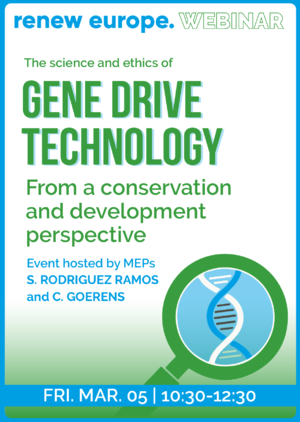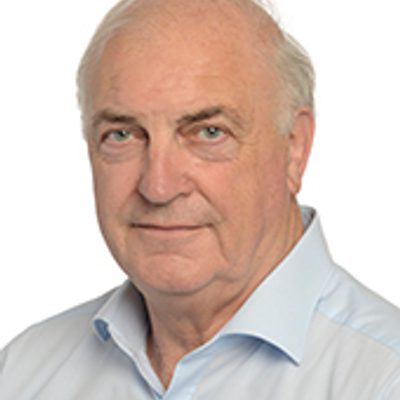The Science and ethics of gene drive technology: from a conservation and development perspective

This hearing intends to examine gene-drive technology and its possible impacts, including unintended ones and reveal the complexity of an unknown technology with inherent uncertainties. Scientists from different backgrounds in the field of gene-drive research will present most recent scientific findings and allow us to exchange on a technical, but also ethical debate.
We believe that both Committees (ENVI/DEVE) have an important say in this debate, reason why experts from both sides will be invited to elaborate on specific ethical, scientific and implementation issues.
Context
Some might know gene drives for their possible capacity to suppress malaria by eradicating mosquito populations. However, their application goes well beyond, including through its potential to eliminate other insect-transmitted diseases, erase herbicide and pesticide resistance in weeds and pests and remove invasive species from ecosystems. Whilst looking into potential benefits, we should also weigh the significant risks involved in gene drive use. Gene drives may have unintended risks such as, limited access to the seed varieties, patented ownership of the food supply, impact on rights of indigenous people and unintended mutations.
Draft programme
10H30-10H45: INTRODUCTION
- Welcome by MEP Soraya Rodríguez, Renew Europe, Committee on the Environment (5 minutes)
- Keynote speech by Virginijus Sinkevičius, Commissioner of Environment, Oceans and Fisheries, European Commission (10 minutes)
10h45- 11h20: FIRST PANEL DISCUSSION- Gene drive application on biodiversity conservation and adaptation (Moderation by Soraya Rodriguez – 5 mins)
- 10h50- 11h00 - Dr Gernot Segelbacher, IUCN Task Force on synthetic biology.
- 11h00-11h10 - Ricarda Steinbrecher, molecular geneticist and developmental biologist.
- 11h10-11h20 – Dr Yann Devos, EFSA representative: Adequacy and sufficiency of existing EFSA guidelines for risk assessment of gene drive.
11h20 – 11h35 Q&A Session with MEPs reacting to the first panel
11h35- 12h20 SECOND PANEL DISCUSSION: Gene drive application on human health and research in developing countries (Moderation by Charles Goerens – 5 mins)
- 11h40-11h50 - Mariam Mayet Executive Director, African Centre for Biodiversity.
- 11h50-12h00 - Léa Pare, Target Malaria du Burkina Faso, Cheurcheuse de l’IRSS;
- 12h00- 12h10 - Ali Tapsoba, President of the organization Terre à Vie (tbc)
12h10 – 12h25 Q&A Session with MEPs reacting to the second panel
12h25- 12h30 Closing remarks by MEP Charles Goerens, Renew Europe, Committee on Development
